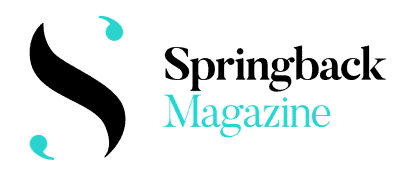Springback Academy 2015
Feature
(Ine)quality and dance criticism: but what about the dance?
The call for expressions of interest to take part in the Springback Academy promised mentorship in quality dance criticism. The texts we produced were subsequently posted on the Springback Academy website in an attempt to “stimulate conversations online that will enable Aerowaves to connect with digitally active dance enthusiasts across Europe – ensuring people who are not in Barcelona share ideas, thoughts and views.” However, in a round of introductions prior to the festival, and again during a panel discussion titled Critical Issues, seemingly conflicting efforts at Spring Forward to (i) encourage discussions about dance online, and (ii) simultaneously problematise dance criticism published/posted online, became apparent.
How did the Springback Academy’s texts differ from other examples of online commentary the panel cast doubt upon? In short, it was suggested that our writing was elevated from ‘poor’ examples of online dance writing thanks to our collaboration with experienced mentors who edited/filtered our work. Further, we were involved in a program initiated by an organisation at the head of a network of European dance institutions, while most bloggers are not.
On the one hand, the cultivation of young cultural commentators is an admirable project I was lucky enough to benefit from. On the other hand, in light of fellow Springback Academy writers’ online platforms for discussions of dance independent of dance/news establishments, I felt distinguishing between legitimate and illegitimate opinion also does a disservice to their grassroots work by limiting the range of valid approaches and responses to dance.
Against this background my short contemplation of the Springback Academy format will hopefully draw attention to the scope of expertise beyond establishments and their sanctioned guides. In doing so, I also propose (briefly) how contemporary dance literate writers could contribute to the grander project of dance dissemination. Although the following does include suggestions as to how the Springback Academy could accommodate a greater range of voices, they are far too openly formulated to be considered advisable steps. Rather, they emerged out of thoughts on my supposed mediating role between dance and those interested in dance, and the boundaries dance criticism – in isolation from other forms of dance mediation – might be complicit in constructing between these two parties.
Those unfamiliar with contemporary dance, likely some of the people who were following the festival online, would struggle to access a work based on a critique alone (and not only because appears after the performance has taken place). Conversely, experienced dance spectators and specialists (many of whom were in Barcelona) rarely require, or show interest in, reviewers’ opinions. After seeing a work first hand and having read a dramaturg’s programme notes these audience members are more than capable of forming their own.
Perhaps, as opposed to making expert opinion an exclusive affair, which in the exceptional context of Spring Forward could be characterised as preaching to the choir, the Springback Academy could tap into the wealth of knowledge of those attending. Admittedly, many audience members find comfort in not having to contribute more than small talk at cultural events. However, for those inclined to share their thoughts without engaging in public, streamed panel discussions, opportunities could have been provided for these individuals to do so discretely and anonymously. Surely some audience members would have liked to contribute a paragraph, or even respond to the Springbackers’ own attempts to capture and critique a work in text(?) A comparable format was tested this year; roving Meerkat reporter and Springback Academy alumna, Sally Marie, conducted what she described as “really interesting” interviews with those attending events, as well as chats with strangers online. Unfortunately, these conversations were not documented for the Spring Forward archives, underlining again the differing values assigned to formal and informal examples of knowledge production and circulation online/in dance contexts. Or maybe they simply required too much evaluation and contextualisation to be made freely available.
Meanwhile, we Springbackers were regularly reminded of our obligation to be considerate of an online readership and, to an extent, conform to an editor’s wishes. After all, anybody with a computer and an internet connection could stumble across our reviews. Compounding the demand for accessibility in dance journalism is the the popular conception of dance as an non-discursive/pure/universal art form.
Unlike us, artists tend not to be so mindful of their audiences. In fact, a considerable number of dance artists grapple with overtly academic interests and scholarly dance perspectives artistically and concretely. As we saw in Barcelona, Giorgia Nardin and Euripides Laskaridis challenged gender norms, Vilma Pitrinaite invoked Benedict Anderson’s formulation “imagined communities”, Dan Canham engaged with ethnographic methods and historiography. In these instances the Springback Academy could also be deployed and venture into dance mediation prior to showings, as opposed to just critiquing it after the event, i.e. by providing guiding questions or directing focus. This recommendation would be primarily intended for those viewing the festival online, who might struggle connecting to conceptual/performative works removed from their live presentation, and are possibly unfamiliar with contemporary dance practices.
This extends beyond the scope of dance criticism, nevertheless, it could/should be expected of those who specialise in dance discourse to develop a sensitivity among lay spectators for the embodiment of complex concepts on stage. If this were to be explored, not only would the Springback Academy succeed in explaining works, it would also equip new audiences with tools for future contemporary dance appreciation.
This is my opinion, not authoritative, although somewhat institutionally validated.

